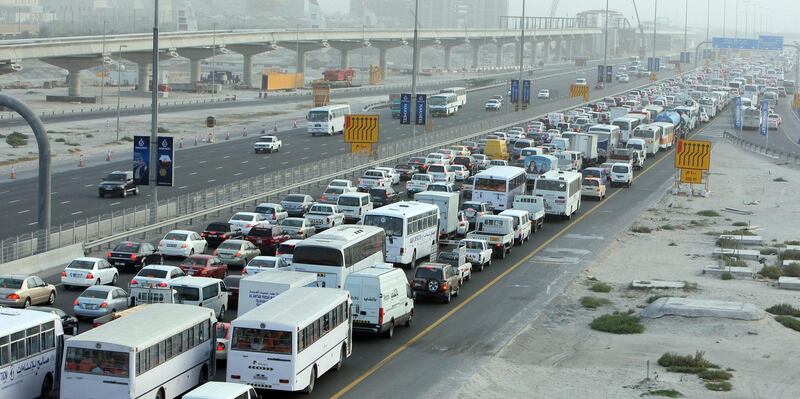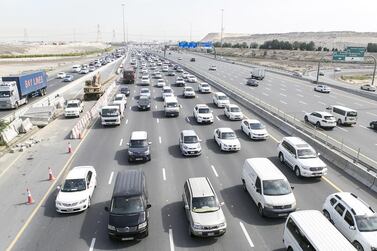Dubai drivers have backed UAE Car Free Day - but insist a lack of public transport options is a roadblock to its success.
The annual initiative, which was launched in Dubai but has since been extended across the Emirates, is marking a milestone 10th anniversary on Sunday.
While motorists welcome efforts to reduce the number of cars on the roads as a way to cut congestion and boost the environment, they said ditching their vehicle on a more regular basis is not "feasible".
A lack of public transport for people living outside the centre of Dubai and long walking distances to metro stations have been cited as reasons to stay in the driving seat.
“A no car day is a great idea but it is just not feasible where we live,” said teacher Emmy Quinn.
‘It is a 20-minute drive at least from my home in Dubai Silicon Oasis to where I work. There’s no other way for me to get there without a car.”
Each year tens of thousands of people have left their cars at home and found alternative modes of transport to get to work as part of the car free campaign.
Dubai Municipality said last week it hoped the scheme would encourage motorists to permanently leave their vehicles behind to free up the emirate’s busy roads.
A global survey recently found that the average Dubai motorist spent the equivalent of nine working days stuck in traffic in 2018.
However, residents of the Emirates felt there were not enough realistic alternatives to taking the car to work.
“It is impossible. There is no Metro where I live,” said Ms Quinn.
“The buses only go as far as Karama as well which means public transport is not feasible when it comes to getting to work.”
Her fellow Irishwoman Jacqueline Albertson also felt that taking public transport was not a permanent option.
“It is impossible when there is no permanent transport to all areas,” said the 45-year-old, who works in visual merchandising.
“The taxis would also have ridiculous waiting times too.”
One of the main aims of the scheme is to encourage people to exercise more, as well as reduce fuel emissions and traffic congestion.
Graphic designer Aaron Sutton said that he had already started to take the bus to work each morning.
“This means I have a 25-minute walk to the bus station each day,” said the 30-year-old.
“The bus only costs me Dh3 for a 10-minute journey to my office. The length of the walk means that it wouldn’t be something I could in the summer though because of the extreme heat.”
Theatre director Padraig Downey said that while he was in favour of the scheme, he felt that public transportation would not be able to cater for everyone’s needs.
“This will only mean that more people would take taxis and that kind of defeats the purpose,” he said.
“I would also love to be able to cycle around Dubai but again the infrastructure is not there for it.”
Policies encouraging workers to leave their cars at work are commonplace across the world. A recent survey by the AA revealed that one in 10 UK motorists were opting for public transport because it spared them the hassle of having to find a parking space when they reached the office.
Road Safety UAE managing director Thomas Edelmann said the Car Free Day is an important initiative.
“There are a whole host of safety issues that are caused by traffic congestion,” said Mr Edelmann.
“It is very easy to talk the talk but this encourages us to look at alternative means of transportation.
“It makes us reflect on the use of our vehicles and think about using public transport.”








